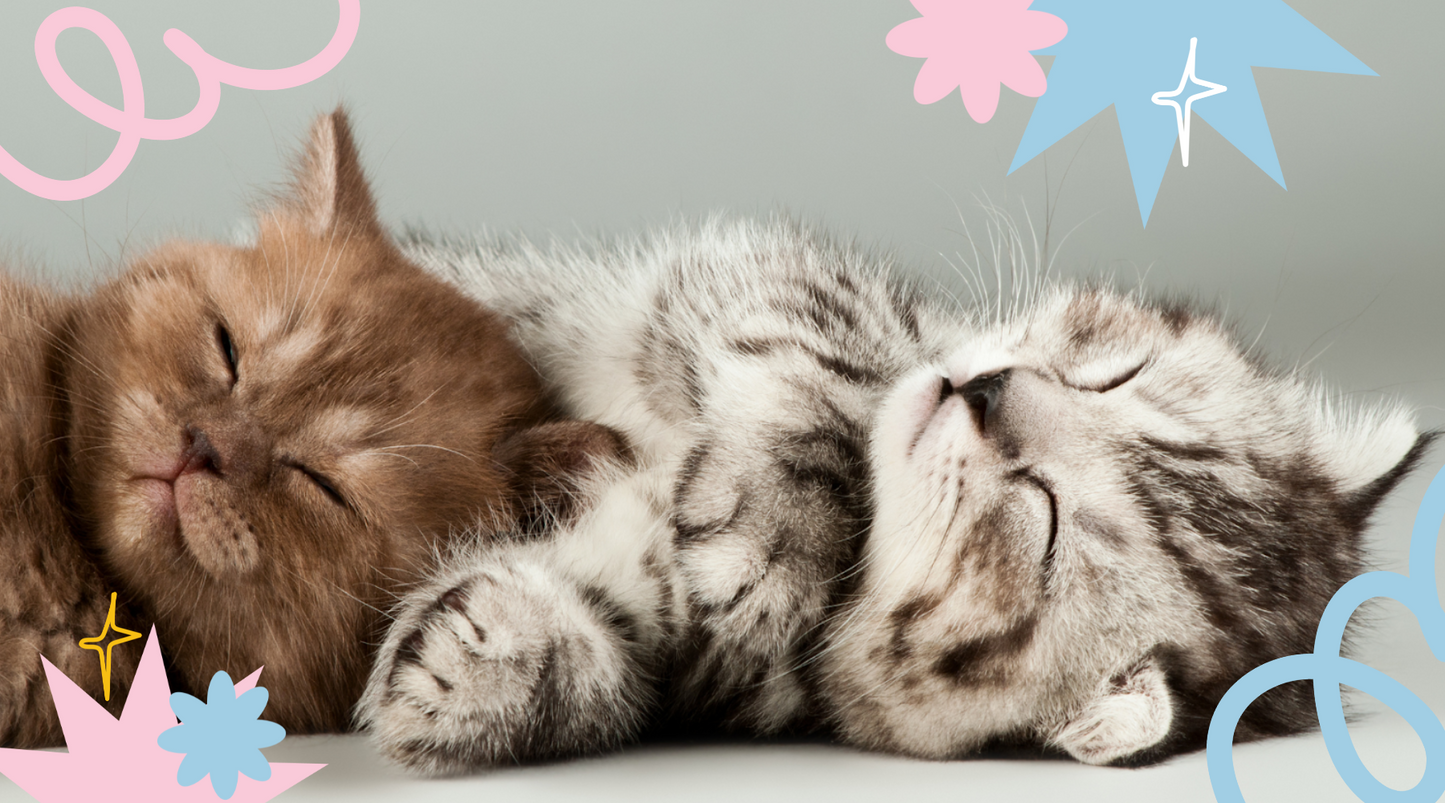
Adopting a kitten from a breeder is an exciting time, but finding the right breeder who will set you up for success is key. Asking the breeder the right questions will help ensure you find a happy, healthy kitten that will fit right into your home and family for many years to come.
Buying a kitten is a big commitment, so you want to be sure you are choosing the best kitten for your lifestyle. There are some important questions every potential kitten owner should ask a breeder before deciding to purchase a kitten. This article will overview the top 18 questions to ask a cat breeder to help you find the perfect new furry friend.

1. What Breed of Cat Are the Kittens?

One of the first questions to ask is what breed of cat the kittens are. There are over 70 recognized cat breeds that vary greatly in personality, energy level, grooming needs, and size. Popular breeds like Siamese and Maine Coon have very different characteristics, so knowing the breed will give you a good idea of what to expect with your new kitten.
The breeder should be knowledgeable about the breed and its traits. A breeder who cannot tell you details about that breed's tendencies is a red flag.
2. Are the Kittens Purebred or Pedigrees?

You'll also want to ask if the kittens are purebred or pedigrees. A purebred kitten's parents are both from the same breed. Pedigree kittens are purebred cats that have been registered with an association like The Cat Fanciers' Association (CFA).
Registration paperwork proves their purebred status. If you are looking to buy a pedigree kitten, the breeder should provide official documentation.
3. How Old Are the Kittens?
Kitten age is another vital question. Reputable breeders will not allow kittens to leave their mother until at least 12 weeks old. By this age, kittens have had proper socialization with their mother and littermates to learn skills and manners.
Many good breeders even keep kittens until 4 months or older before adopting them out. Kittens adopted too young are more likely to have behavior issues.
4. Can I Meet the Kittens' Parents?

Ask to meet both the kitten's mother and father. Seeing the parents will give you an idea of the kitten's expected size, temperament, and health as an adult. Responsible breeders who stand behind their kittens will gladly introduce you.
Breeders who refuse contact with the parents may be trying to hide something, such as poor conditions. Always try to see the mother at the very minimum.

5. How Many Litters Has the Mother Had?
Ask the breeder how many litters the mother has had. Experienced breeders will not breed a female more than a few times to avoid health complications. A kitten's mother should be at least 1 year old before her first litter.
A mother who has had too many litters could pass health troubles to her kittens. Also be cautious of "kitten mill" breeders who view cats as breeding machines.
6. What Veterinary Care Have the Kittens Received?
Confirm that the kittens have been checked by a vet and received proper vaccinations and deworming. Some vaccines and medications are first given around 8-12 weeks old, but the breeder should provide documentation of what's been done.
Kittens should be active, energetic, and have clear eyes and noses. Ask if the vet has screened for health conditions common in the breed.
7. Does the Breeder Offer a Health Guarantee?
Many good breeders provide a health guarantee with their kittens, often for 1 year or longer. This means they will take back or assist with medical care if the kitten is found to have a genetic defect or illness in the covered timeframe.
Ask for details on what conditions are covered and for how long. At minimum, a good breeder will take a kitten back if a serious issue is found.
8. What Does the Breeder Feed the Kittens?
The breeder should feed a high-quality kitten food appropriate for the breed. Find out which brand they recommend and use. It's best to continue feeding the same food at first to your new kitten to avoid an upset stomach.
You want to ensure the kittens are raised on a nutritious diet for proper growth and development. Discount or low-quality foods are red flags.
9. What is the Temperament of the Kittens and Parents?
Personality is important! Does the breed typically have a playful, laid-back, vocal, shy, or aggressive temperament? Tell the breeder about your lifestyle and ask if they recommend their kittens for it. For example, busy homes may not suit all energetic breeds.
Meet the kittens to get a sense of their individual personality too. The parents' temperament gives clues about what they'll be like long-term.
10. How Have the Kittens Been Socialized?
Proper early socialization prevents behavior issues with kittens. Ask specifics on how the breeder socializes kittens in the critical first 12 weeks including exposure to different people, animals, noises, handling, and more.
Kittens should be friendly, trusting, and comfortable with human contact. If a kitten seems fearful or uncertain, it may not have been socialized well.
11. Are There Any Restrictions on the Purchase?
Some breeders will require a kitten to be indoor-only or mandate spay/neuter at a certain age. Ask if the breeder has any restrictions or requirements with their adoption contract. Make sure you fully understand and are comfortable with any stipulations before moving forward.
12. What Are Common Health Issues With This Breed I Should Know About?
Like humans, cat breeds can be prone to certain health conditions. Responsible breeders test their breeding cats for breed-specific illnesses and should disclose any vulnerabilities you should be aware of. They will be honest about what health problems may occur.
For example, Persian cats often have frequent dental issues. Or Maine Coon cats are more susceptible to heart disease. Asking this question allows you to be prepared if your kitten is predisposed to any ailments.
13. What Questions Does the Breeder Have For Me?
Good breeders screen potential buyers too! A responsible breeder cares where their kittens end up. They will likely ask you questions about your home, family, lifestyle, and ability to care for a cat long-term.
A breeder who doesn't seem interested in whether their kitten is going to a good home isn't one to buy from. Expect to answer questions too during your conversation.
14. How Often Can I Contact the Breeder With Questions After Adoption?
Look for a breeder who will be a resource for you after you take your kitten home. Many quality breeders even remain in contact for the duration of the kitten's life and want occasional updates.
Ask how available they will be for any questions and concerns in the future. Caring breeders will provide support during your kitten's life.
15. Does the Breeder Belong to Any Professional Associations?
Membership in organizations like The International Cat Association or the CFA indicates dedication, knowledge, and commitment to responsible breeding. These groups uphold breeding standards and codes of ethics. Affiliated breeders are more likely to stand behind their kittens.
Ask what organizations or groups the breeder is accredited by or involved with. Their associations tell a lot about their reputation.
16. May I Come Meet the Kittens Multiple Times Before Deciding?
Trust your gut when you meet kittens in-person. You want to visit more than once if possible to confirm you are comfortable with the breeder, facility, and kitten. Many breeders will allow multiple interactions before adopting out a kitten.
Responsible breeders want their kittens going to homes that are a great fit. Don't feel pressured into putting down a deposit on your first visit.
17. Does the Breeder Have References From Past Kitten Buyers?
Quality breeders will be happy to provide references from past kitten owners. Follow up with a call or email to previous buyers to ask about their experience with the breeder and health of their cat.
Speaking with previous customers can give you great insights into what to expect down the road. This is an important but often overlooked step.
18. Does the Breeder Show Their Cats Competitively?
While not mandatory, many reputable breeders participate in cat shows. Ask the breeder if they show their cats and how their cats have placed in competition. Awards and titles indicate quality breeding stock.
Breeders involved in shows take pride in having healthy, correct examples of their chosen breed. Show cats are more likely to have good temperaments too.
In Summary
Choosing the right breeder sets the tone for your new kitten. Don't be shy asking questions! A quality breeder will happily answer them all. The ideal breeder is experienced, ethical, knowledgeable, and cares about the animals and new owners.
Some other signs of a good breeder include:
- Clean, spacious cattery facility
- Kittens are handled frequently by humans from birth
- Provides kitten contract and health records
- Screens potential buyers
- Follows-up after you take the kitten home
With the right breeder, you can find a happy, healthy kitten that will bring years of joy into your life. Asking these key questions helps uncover the best breeder and ensures it’s a positive experience as you welcome your new furry family member.
